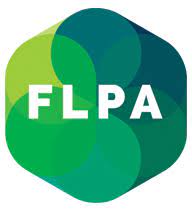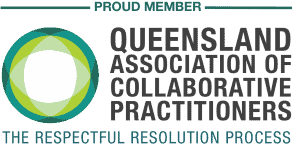The Child Adoption Process
If you’re considering adopting a child, you may wonder how this interplays with family law and your parenting rights. Each state and territory have their respective laws regarding family law and adoption, and unfortunately, there is no uniform system.
Family Law – Adoption
In Queensland, adoption is not governed by the Family Law Act – the relevant legislation is the Adoption Act 2009. In the instances of Queensland adoptions, whether you want to adopt your step-child, an Australian child or an overseas child, you must register your expression of interest through the Adoption Services Queensland expression of interest register.
Because of this system, Queensland’s adoption is mostly an administrative law issue and not a family law issue. The other legislation that plays a part in overseas adoptions is the Hague Adoption Convention.

What are the Different Types of Adoption?
Adoption is the legal process where a child officially becomes a recognised member of a family. Once the adoption is complete, the adoptive parents take over all legal rights and responsibilities from the birth parents. They effectively sever all ties between them and their birth parents and the birth parent’s extended family.
There are three different types of adoption:
- Intra-family adoption: This is simply the term for step-parent adoption. This is where a step-parent officially adopts their partner’s child or another family member assuming within their family. Step-parent adoption is a different process from other forms of adoption and does involve the family court.
- Intercountry adoptions (adopting a child from overseas) – In Australia, this is the most common form of adoption. When wanting to adopt a child from overseas, the person or couple will have to register their expression of interest and, if deemed suitable, will be placed on a waitlist.
- Local adoption: This is known as ‘closed adoption’ and involves adopting children to people not known to the child’s biological parents. Local adoption is uncommon in Australia, mainly because the birth parents can stipulate the type of family they wish for the child to live with.
Another form of local adoption is when a foster parent wishes to adopt a child that has been in their care for a long time. In this situation, the foster parent still has to go through the same process as if they were a stranger to the child and seek the birth parents’ consent. Much like other prospective adoptive parents, foster carers wishing to adopt their child should expect delays.
Intercountry Adoption
If considering adopting a child from overseas, you should thoroughly read the Hague Adoption Convention. Adopting a child overseas is not as simple as adopting any child from any country so long as the birth parents’ consent. If wanting to become that child’s legal parents, parties must follow the Hague Convention. Suppose you either don’t comply with the adoption rules stated in the Convention, or you adopt from a non-signatory country. In that case, you risk not returning to Australia with that child because you may not obtain an Adoption Visa.
How do I Adopt a child?
If you want to adopt a child locally, there are only a few requirements to express your interest.
To be eligible to express your interest in adoption proceedings, you must meet the following prerequisites:
- You must be at least 18 years of age;
- You must be an Australian citizen if a sole adoptive parent, or if jointly with a partner, at least one you must be an Australian citizen;
- You must be a Queensland resident;
- You cannot be pregnant;
- You are not an intended parent under a surrogacy arrangement;
- You must not have custody of either a child aged less than one year or a child who has been in your custody for less than one year (excluding children for whom you are an approved carer under the Child Protection Act 1999); or
- Your name must not already be in the expression of interest or suitable adoptive parents registers.
If you meet these criteria, you can then register your expression of interest by completing this form. The Adoption Services will notify you once you have been deemed eligible. From there, you will receive another notification if you are selected by the Adoption Service to have your suitability assessed. Suppose you are not selected within two years. In that case, your expression of interest will expire, and you will need to lodge another form.
If you would like to know more about whether you will be assessed as suitable adoptive parents, read here.
Cudmore Legal – Trusted Adoption and Surrogacy Lawyers
Cudmore Legal is a prominent and respected family and adoption law firm. Our adoption and surrogacy lawyers provide high-quality advice for family law in Brisbane, Sunshine Coast, Gold Coast, and surrounding areas.
If you choose any of our surrogacy or adoption lawyers, you will be getting the support of an entire team. Our solicitors work closely together to ensure our clients receive comprehensive solutions, which, in turn, provide them with the best legal outcomes in their cases. Whether you need a family adoption lawyer or adoption lawyers for navigating complex surrogacy agreements, Cudmore Legal is committed to guiding you through every step of the legal process with professionalism and compassion.






